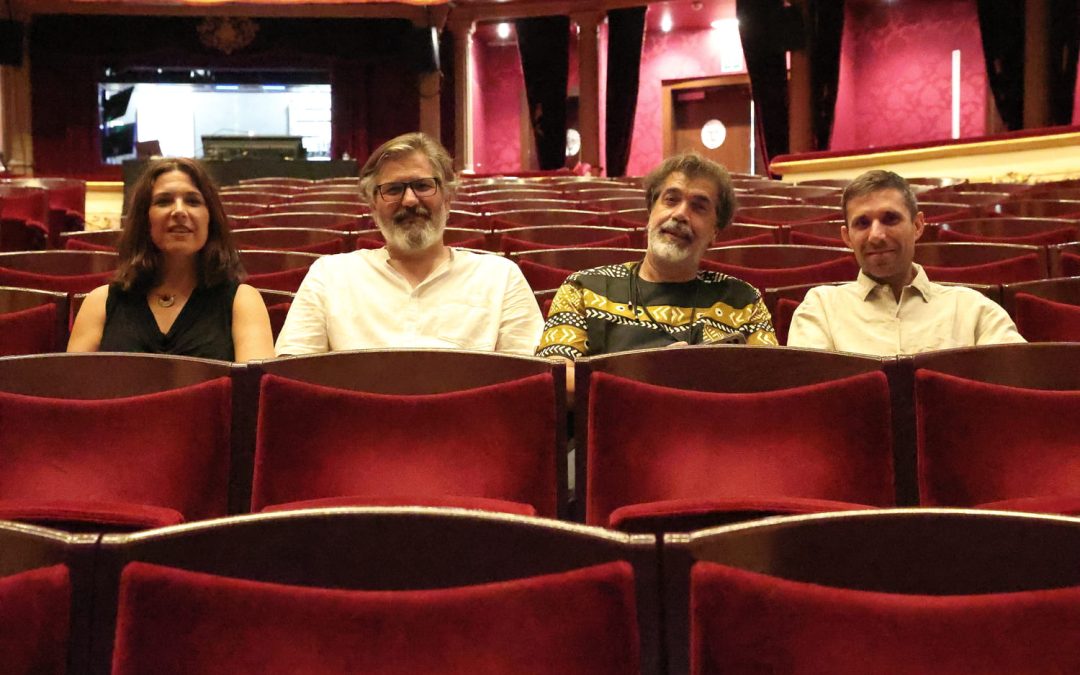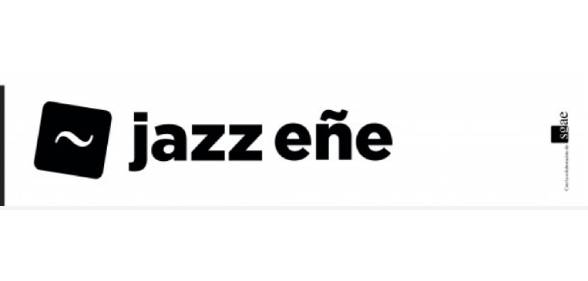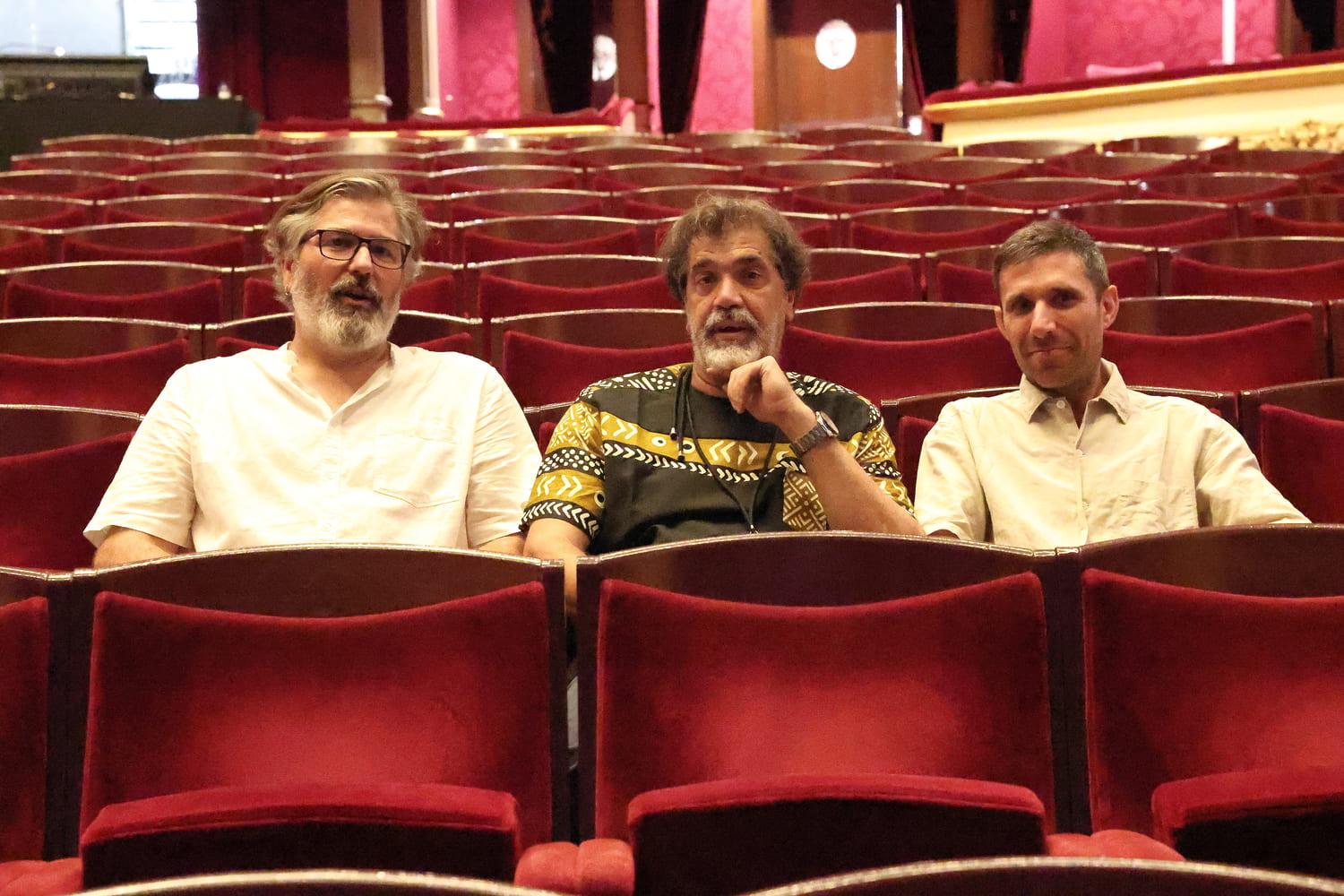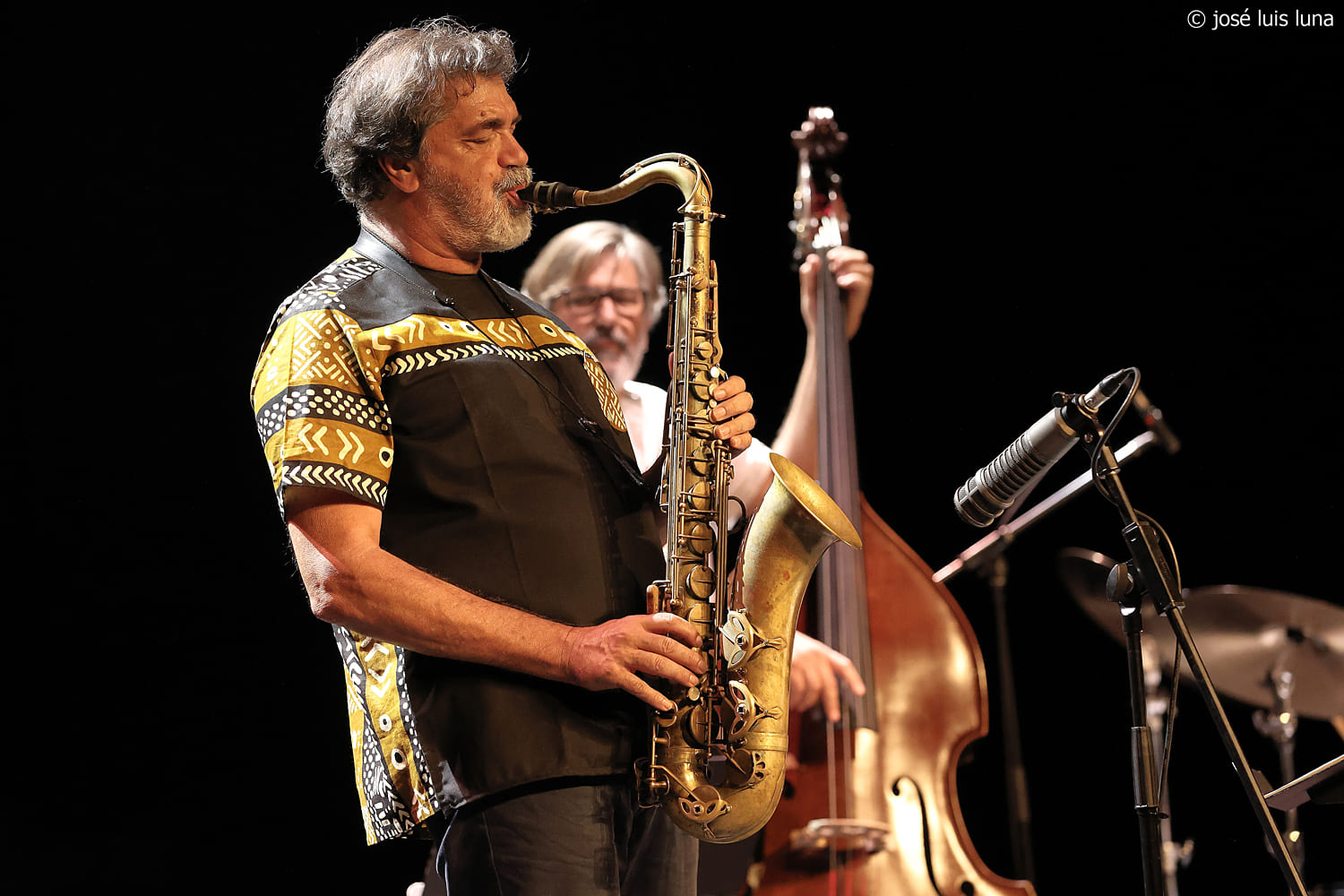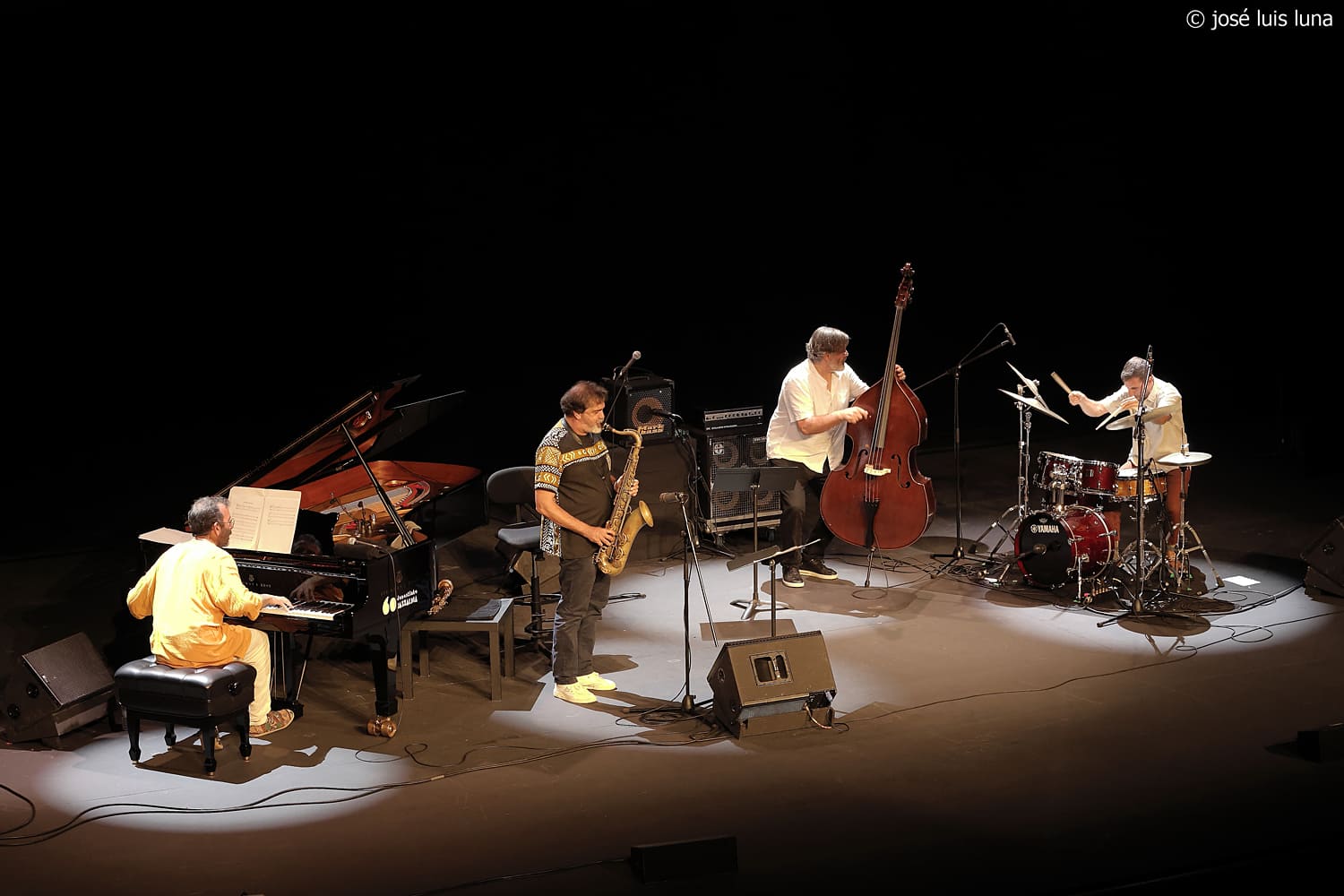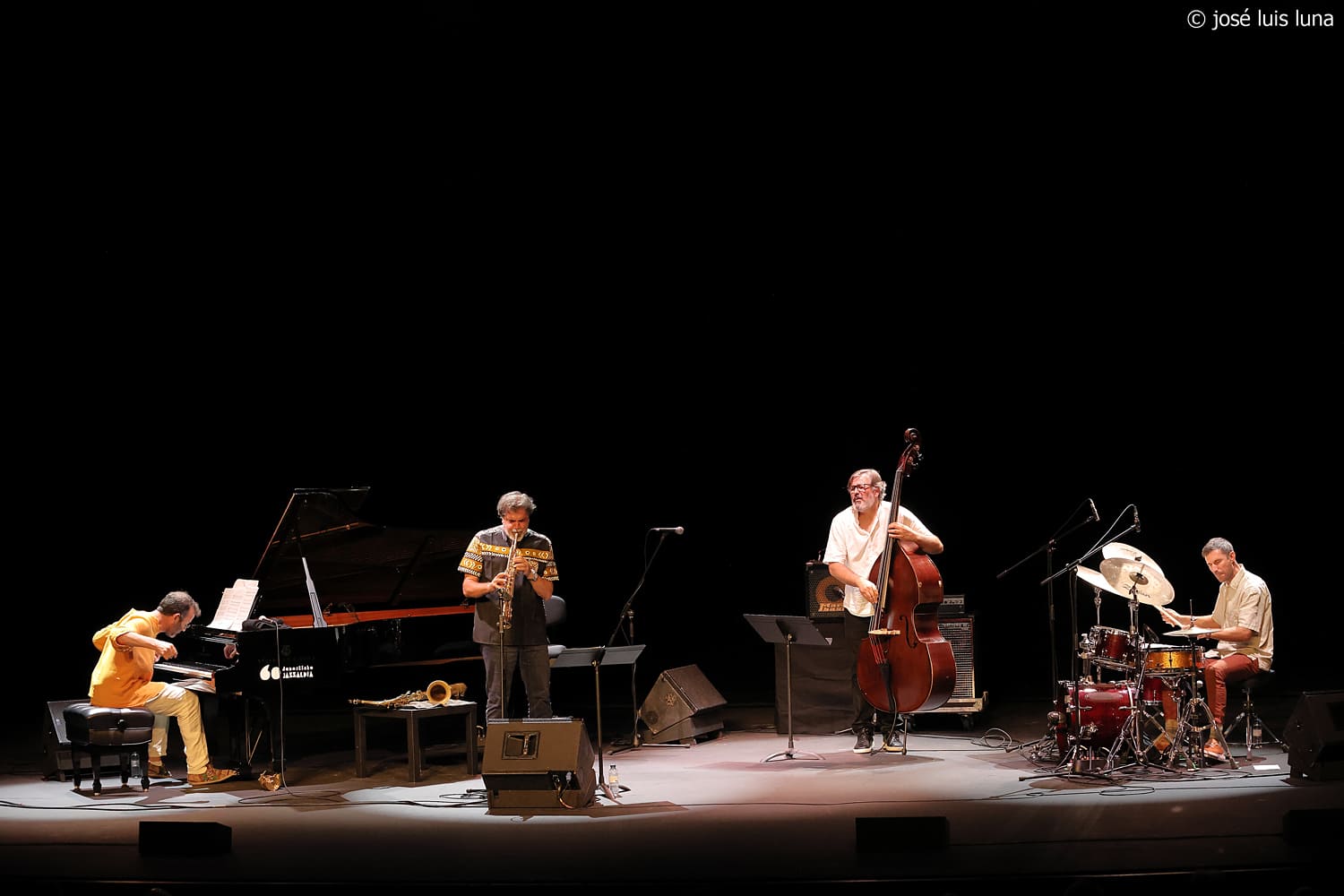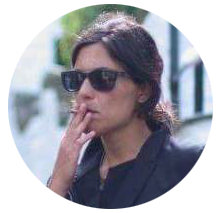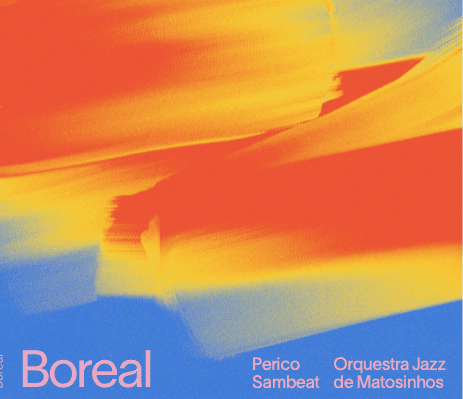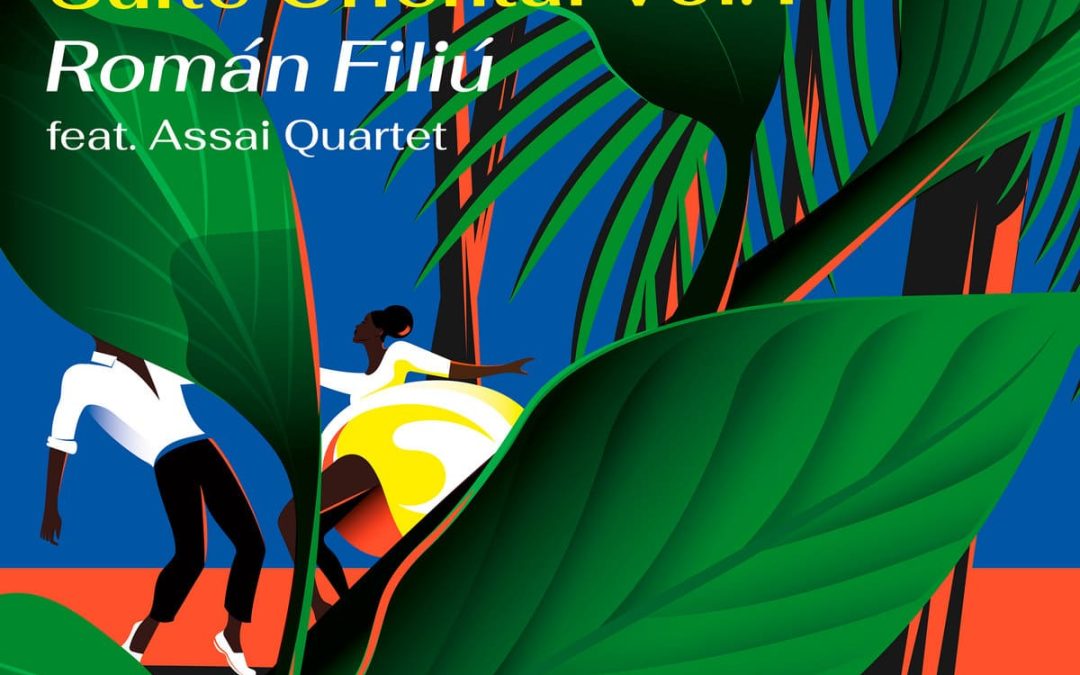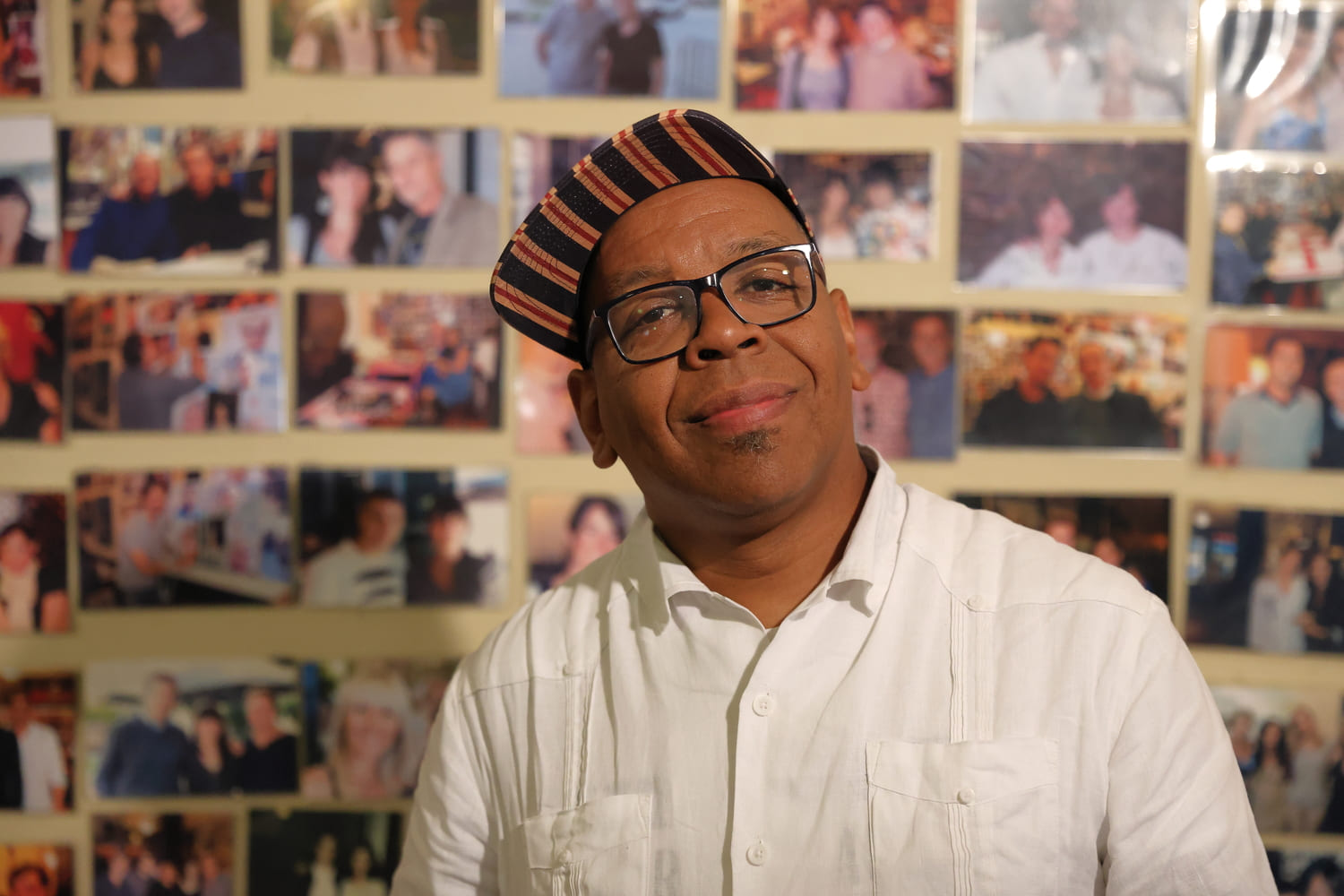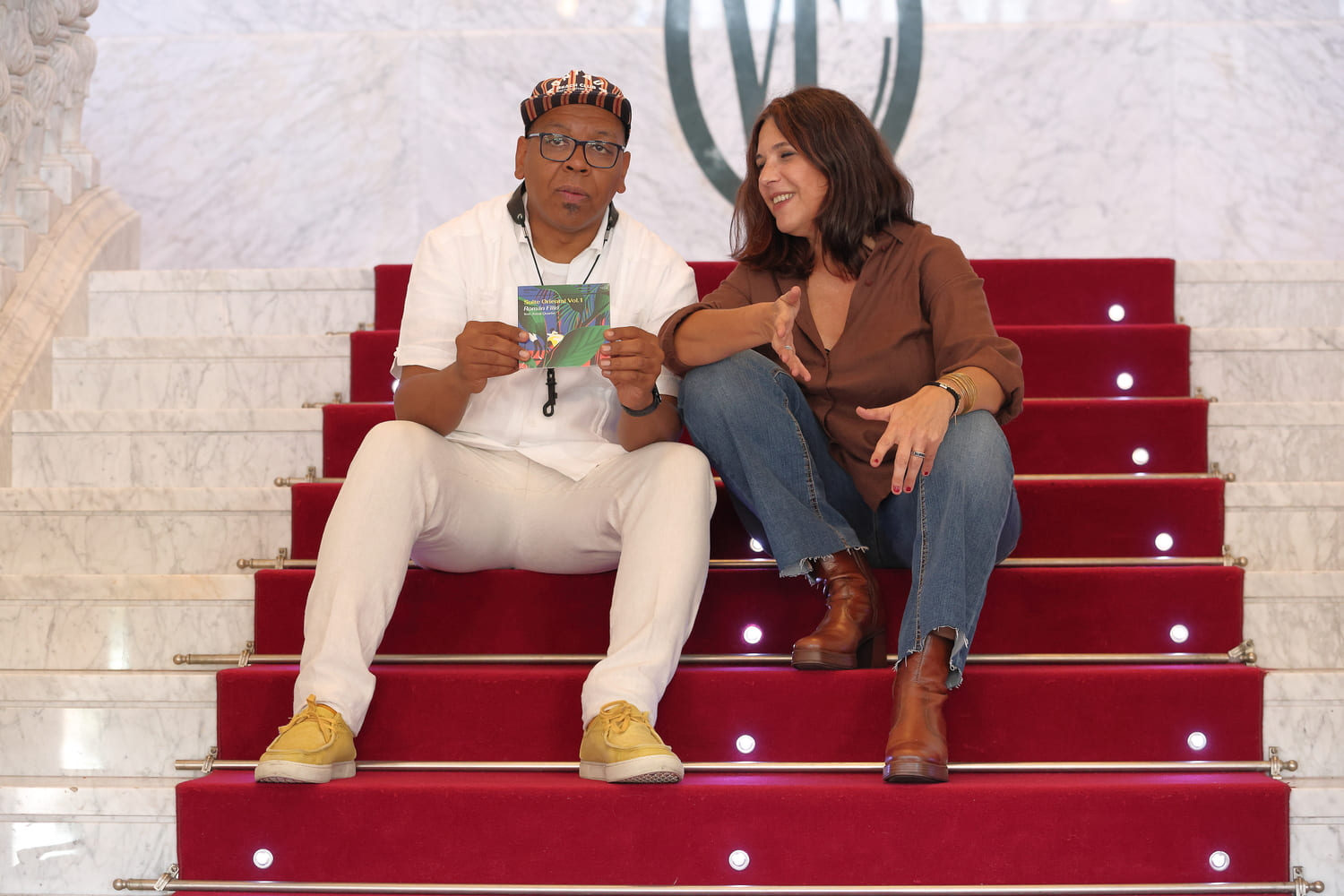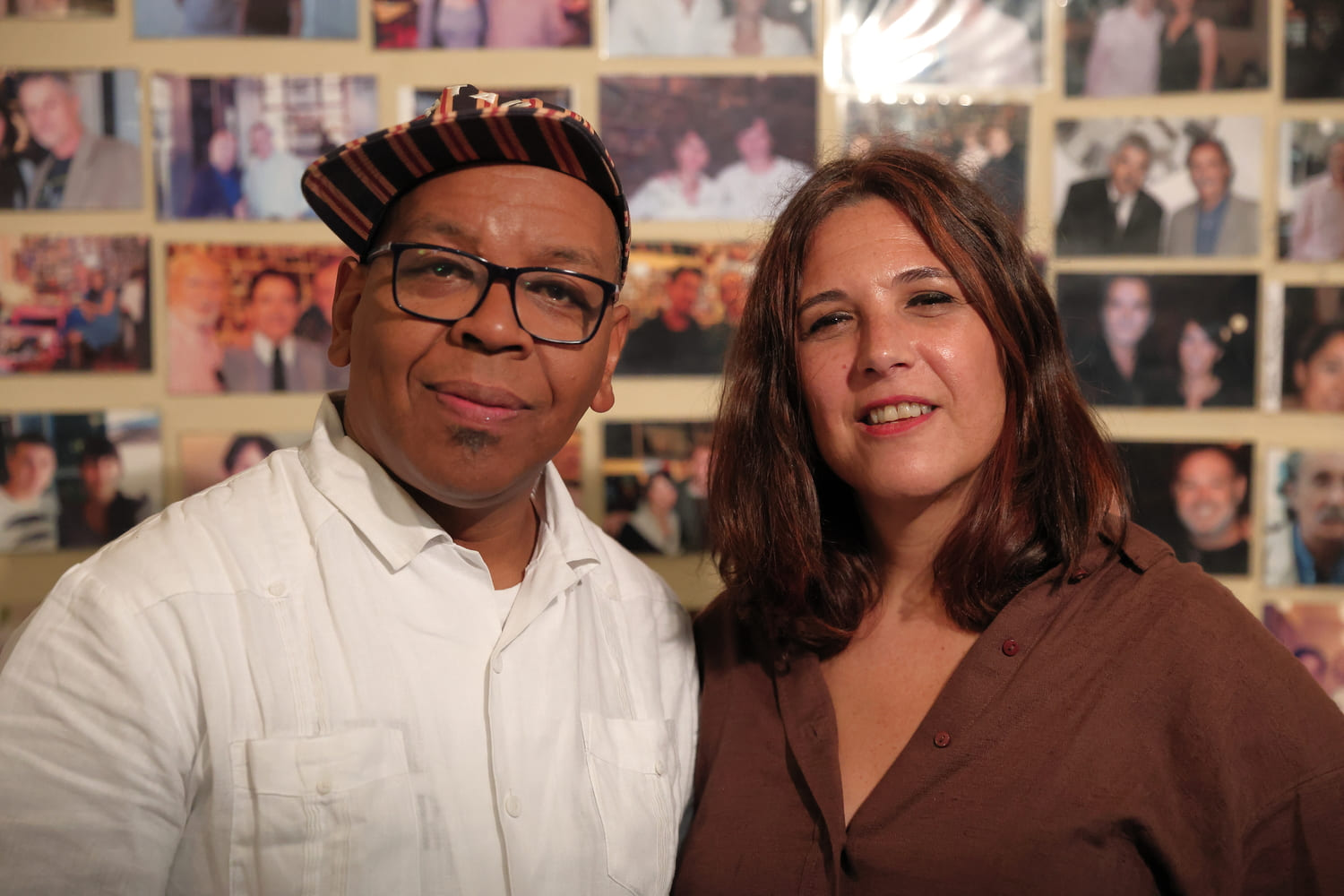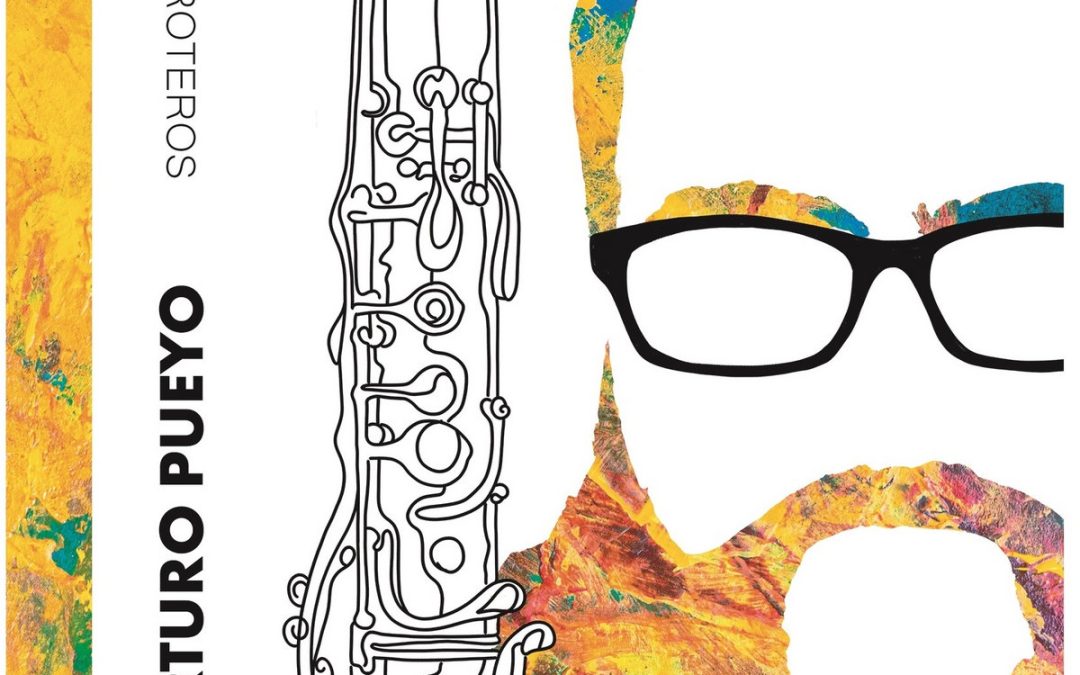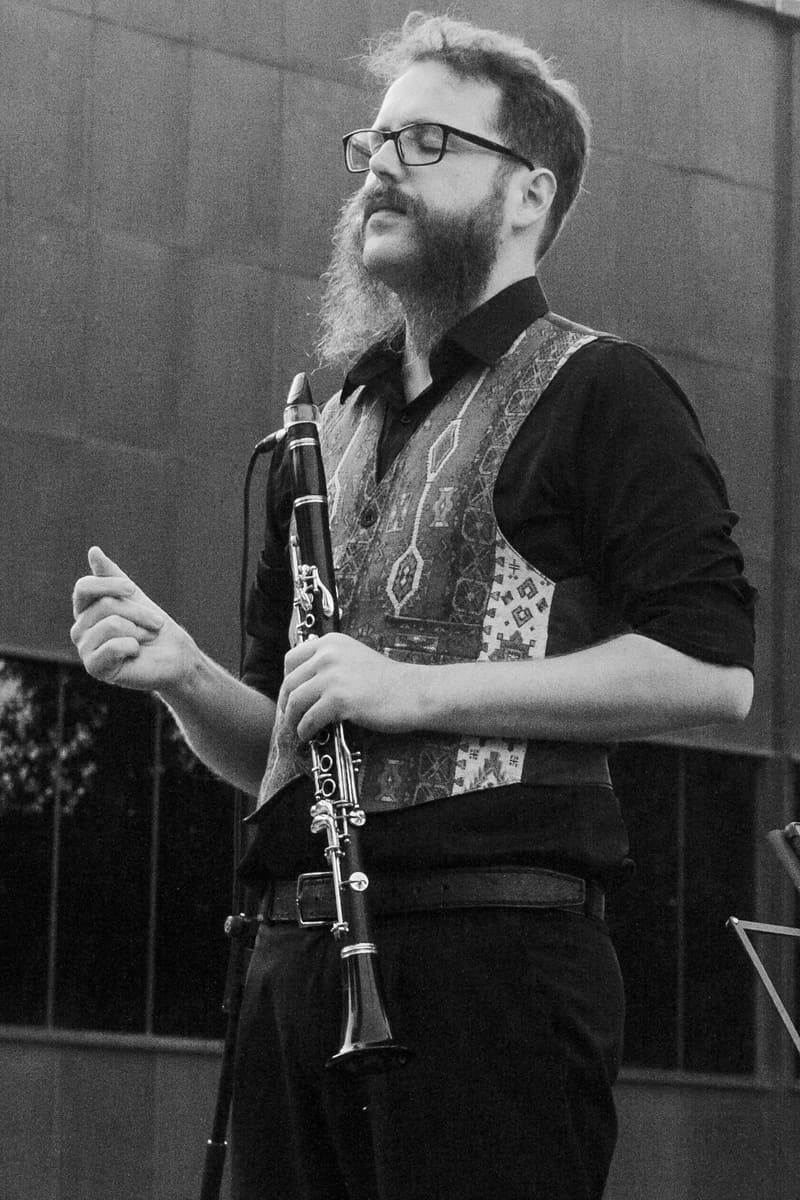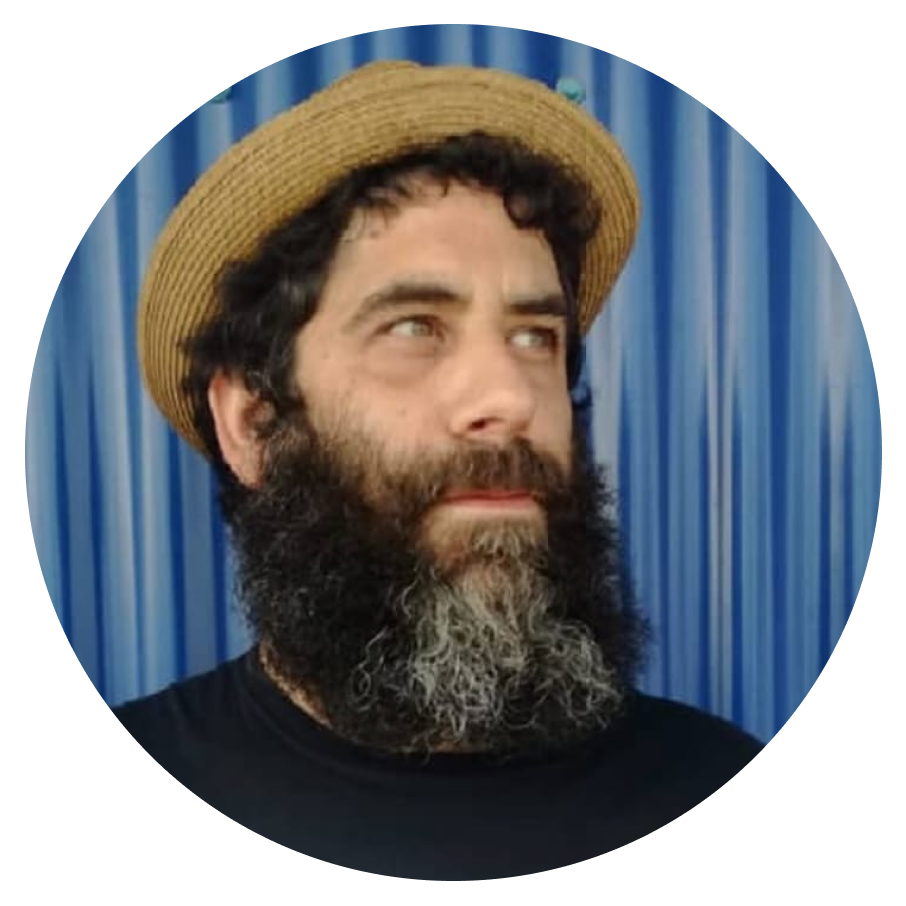In&OutJazz: Perico Sambeat, es un placer hablar contigo. Empezamos. ¿Cuál es tu proceso creativo a la hora de componer y arreglar los temas? ¿Los compones como un standard creando melodía, armonía y luego los arreglas o vas directamente encaminado al arreglo de big band?
Perico Sambeat: Creo que ha habido ambos casos, algunos temas son más antiguos, como Ciudad del Paraíso, que de hecho fue grabado en otro disco que se llama Sketches of Pangea, con Marc Miralta y Kálmán Oláh, un gran pianista húngaro.
Limbo también tiene un par de años, lo escribí para mi combo del Taller de Musics de Barcelona.
Nada más me ofrecieron la posibilidad de grabar el disco me vinieron a la cabeza sonidos y posibilidades de creación. Circe fue el primero que compuse. Me senté al piano y empecé a escribirlo como si fuera un blues.
Normalmente los escribo como si se trataran de temas para pequeño formato, en muchos casos escribo interludios, intros o codas antes de orquestarlos.
Snow Hope lo escribí para un proyecto con Zé Eduardo en Macao, en China, y tenía ya hecho incluso el interludio para 3 vientos, que es intrincado y largo, así que simplemente lo adapté para la orquesta.
Otros temas, como Boreal y como Mãe D’Água han sido compuestos para la ocasión, hice a la vez el arreglo y la composición. Los temas los suelo tener escritos en el piano, pero algún interludio (me gusta hacer interludios que varíen la temática) lo voy creando directamente, orquestando y armonizando a la vez.
Son arreglos con un gran lujo de detalles, pero te quería preguntar si hubo rectificaciones de lo que había en el papel luego en los propios ensayos, cosas que no funcionaran, cosas que decidiste cambiar en el momento porque viste alguna posibilidad diferente.
Pocas cosas. La verdad es que paso tantísimo tiempo dándole vueltas al arreglo durante el proceso de composición, que al final tengo bastante claro cuál quiero que sea el resultado y cómo quiero que suene.
Recuerdo que en el final de Ample, que es el tema más experimental, había un trocito con cuatrillos que costaba una barbaridad de interpretar en la coda, y al final lo cambié. Hay algún otro cambio, pero poca cosa, casi todo respeta mucho la escritura original.
Qué bien. Aunque me refería más a detalles pequeños como dinámicas o algo así que fueran mínimos: instrumentación, sordinas, volúmenes…
Ya veo. En algún momento puede ocurrir por ejemplo que las sordinas de las trompetas impidan que la melodía tenga el peso necesario, y yo decida quitarlas. Y sobre los matices… Yo soy un poco contrario a los matices. A ver si me entiendes, soy contrario a los matices que cobran protagonismo por sí mismos. En algún momento puedo decidir un piano súbito y puede quedar genial, como en algún pasaje de Ciudad del paraíso, pero normalmente me irrita un poco la artificiosidad de los matices, los piano súbito, o los forte súbito sin una clara razón musical. Prefiero que la música hable por sí misma. En casi toda mi música intento que los matices y las anotaciones correspondientes sigan de manera natural el desarrollo de la música, o sea que la música oriente los volúmenes por si misma y no al revés.
No soy muy partidario del abuso de los matices. ¿La música tiene que ser tan radicalmente expresionista? En general, prefiero la naturalidad.
Bueno, de hecho, es que escuchando el disco estaba viendo como hay distintos grados de intensidad dependiendo del tema, sí que se nota lo que dices. Se llega a ellos siempre de una forma natural. Pero supongo que eso también dependerá de que dispongas de una banda como la Orquesta de Jazz de Matosinhos. Con otra big band probablemente no puedes confiar tanto en eso.
Sí, sí. Aun así, los ensayos fueron arduos, estuvimos dándole y dándole. Pero fue fructífero, porque la diferencia de calidad entre el principio y el final de los ensayos fue espectacular.
Por lo que comentabais en la entrevista anterior, te dieron carta blanca para componer y arreglar, te dieron libertad plena.
¿Tenías conocimiento de la banda de la que disponías? En cuanto a si tenías doblajes, quién destaca en qué sonido, por ejemplo, a la hora de delegar los solos, como, por ejemplo, los solos de guitarra.
¿Sabías con quién trabajabas y por eso elegiste ciertos solos, dar el protagonismo a ciertos instrumentos…?
Claro. Me dijeron que disponía del estudio para grabar lo que yo quisiera, el proyecto que más me conviniera. Lo primero que me vino a la cabeza fue un encargo que había recibido de unos músicos suecos, un proyecto para doble quinteto con quinteto de viento clásico, música que ya estaba escrita y estrenada en Suecia. Pero luego pensé: no puedo perder la oportunidad de hacer un disco con la OJM, banda que conozco bien desde nuestro primer contacto quince años atrás (en aquella primera ocasión tocamos en la Casa de la Música de Oporto). Así que decidí dejar este doble quinteto para otra ocasión y escribir nueva música para Big Band. Estuve un año y medio o dos escribiendo la música, y así nació Boreal.
Pero la segunda parte de la pregunta… si conocía bien la Big Band… la conocía lo suficiente como para saber que había unos elementos muy importantes en su formación.
André Fernandes es uno de ellos, con quien he colaborado en muchas ocasiones, toca en algunos discos míos y yo en discos suyos, es un guitarrista espectacular, un músico tremendo. También conozco, entre otros, a José Pedro Coelho que es uno de mis tenores favoritos, con bello sonido y tremendo lirismo.
Así que muchas cosas de las que escribí las hice pensando ya en los músicos que la iban a tocar. Mi sorpresa en el estudio fue que en un principio el batería que yo pensaba que formaba parte de la banda, que es Marcos Cavaleiro, no estaba y el sustituto fue Diogo Alexandre, a quien no conocía en absoluto pero que ha resultado ser un batería fabuloso. El técnico que nos estaba grabando, era nada más y nada menos que Mario Barreiros, mi queridísimo Mario Barreiros, batería mítico de la escena portuguesa y con quien colaboré durante años en las bandas de Carlos Barretto y Bernardo Sassetti, entre otras. Así que allí estaba él en el booth del estudio y nada más empezar le dije: “Mario, tienes que tocar un tema conmigo, tío.” Circe fue el tema que tocó, o sea, que el técnico de sonido bajó las escaleras, se sentó en la batería y tocó espectacular.
Cómo está mezclado y masterizado el disco, a mí, me encanta.
Es una maravilla, Mario Barreiro es un capo. ¡Qué barbaridad! No sé si toca mejor la batería o mezcla y graba, qué nivelazo en todo.
La verdad es que me hace felicísimo que tocara un tema, porque le tengo mucho cariño, después de tantísimos años compartiendo música con mis queridos hermanos portugueses.
A la hora de organizar y de crear el disco hay varios temas que están conectados, pero ¿ya pensaste a la hora de componer en este orden o ibas teniendo ciertas obras dispersas y luego las fuiste distribuyendo?
Suelo tener el orden muy en cuenta a la hora de hacer mis discos. Como por ejemplo en Flamenco Big Band, que funciona como una suite desde el principio de manera que en los conciertos difícilmente puedo cambiar el orden.
Quizá en este caso no es tan radical como FBB, pero Circe es el primer tema que concebí y lo escribí como tema de apertura al disco. Eso lo tenía clarísimo. Entre Mãe D’Água y Limbo, también escribí un interludio de solo piano ya con esta intención.
Vale, está escrito el interludio de piano.
Sí todo, nota por nota. Así que fue preconcebido el unir estos dos temas.
Sí, eso te iba a preguntar. Es curioso como alternas unas sonoridades más impresionistas y otras más… no lo llamaría pop, pero algo parecido.
Pensaba que lo había improvisado el pianista. Y mira, no sabía que lo habías escrito tú.
Quizá ese interludio configura una paleta de mis aficiones o influencias musicales, la clásica también es una de ellas, por supuesto.
En la anterior entrevista, hablabais un poco de la identidad, del lenguaje propio como, por ejemplo, a la hora de escuchar el comienzo del disco: se oye sección de saxos, y aunque no estás tocando tú, identifico que es Perico.
Entonces, ¿qué crees que identifica tu forma de escribir?
No sé si te refieres más a mi forma de escribir o al color de las texturas de mis arreglos.
En este caso me refiero a una visión melódica, ya de tocar melódica y rítmica. Parece que estás tocando tú el saxo.
Pues es posible. La verdad es que es algo que no intento forzar. Escribo lo que me sale natural. Es algo que no se puede evitar. Muchas veces intento ampliar mis espectros sonoros, sobre todo a nivel de orquestación, como en la introducción de trombones de Circe, que tiene una aproximación más clásica y se desarrolla de forma más horizontal que vertical.
Pero a la hora de componer las melodías, como la de Circe, escribo las que me salen de forma natural.
Sí, sí. No es algo negativo, sino al revés, totalmente positivo. Como cuando ves una película de Woody Allen. Aunque no aparezca él, los actores son Woody Allen.
Estaba oyendo las melodías. Y no sé, incluso yo creo que ellos mismos a lo mejor te oyen tocar también un poco de esa misma forma de articular. Aunque supongo que puede ser la articulación que les escribes tú también entonces.
No suelo escribir la articulación específica en las melodías, pasa algo similar a los matices. La articulación debe sonar de forma natural, es muy incómodo tocar con articulaciones forzadas.
Casi nunca las escribo en la partitura, pero si veo que algo no suena según mi idea, la toco yo o la canto para que escuchen mi articulación y la copien.
¿Qué crees que hay de nuevo en este trabajo que hace que se diferencie de los de los otros anteriores de big band?
Bueno, no sé. Hay alguna pequeña investigación de escritura horizontal como eso que he comentado de los trombones, también en alguna intro.
Es mi tercer disco de big band. El primero era muy estilístico dentro del flamenco jazz, pero Boreal no creo que sea tan distinto al segundo.
El segundo tiene muchos temas cantados, yo creo que sigue un poco la misma onda que este tercero, son una serie de temas míos orquestados, y con muy poco straight ahead. Hay un tema cantado que es Limbo, llamé para ello a Alba Morena, que fue alumna del Taller de Musics y canta muy bien.
Tampoco es que haya intentado que este disco sea distinto de los anteriores. Hay temas muy diferentes, como Limbo, que es que es un 3/4 muy luminoso. No había escrito nunca un tema así, en eso se diferencia un poco.
También Circe, que es así como un tema de straight ahead contemporáneo, es distinto de los anteriores. Pienso que Ample es muy diferente por su aproximación a la música más experimental, más expresionista. En este caso sí que, por ejemplo, he investigado en campos armónicos en los que no había aterrizado antes.
En general pienso que la estética de los temas marca la diferencia, si bien todos siguen un poco mi patrón compositivo.
Es una pregunta un poco trampa ¿no? Requiere pensarlo bastante.
Sí, tendría que darle vueltas, analizar a ver qué nuevos elementos hay. Pero quizá mejor que lo hagan los analistas o críticos jajaja.
Eso es, dejemos a un musicólogo que lo haga jajaja.
Tengo la última pregunta. Bueno, tengo dos. Una, las influencias principales a la hora de escribir para big band de otros arreglistas, y de otras big band que te influyen más.
En Flamenco Big Band fue complicado porque no tenía referencias. De hecho, te he dicho que tardé un año y medio o dos en escribir Boreal. Tardé cinco años en escribir FBB, cinco años de continuo trabajo, una cosa de locos, cuatro años y medio.
Creo que la razón de la tardanza es que no había referencias. O sea, las únicas referencias eran quizá Sketches of Spain del cual podría haber tomado como referencia la sonoridad de Gil Evans pero no creo haberlo hecho pese a lo mucho que le admiro y, además, es un disco que de flamenco tiene muy poco.
¿Qué más había de big band con influencia flamenca? Poquísimas cosas. El primer Jazzpaña de Vince Mendoza que de flamenco también tiene más bien poco.
Esto te lo vengo a decir, porque en aquel caso iba muy a ciegas, tuve que encontrar la forma de unir los dos mundos de forma que los estilos se solapasen.
En el caso de Boreal creo que tengo un poquito más de habilidad a nivel de escritura y que voy un poco más rápido, y me dejo llevar de manera más intuitiva.
Creo que puedo nombrar algunas de mis influencias más importantes. Después del análisis de los arreglos de Kenny Wheeler, creo que es uno de los músicos que más me han influido. Tuve la suerte de tocar con él esa suite tan maravillosa que se llama Music for Large and Small Ensemble. Y tuve la suerte de poder acceder a los scores. La verdad es que a veces me descubro utilizando los recursos que él usa, Wheeler era muy grande.
Y ¿músicos o arreglistas contemporáneos?
Bueno, Maria Schneider inspira mucho con su forma de escribir tan lirica y rica, muy influida por el clasico. O Bob Mintzer que sin ser yo muy fan de su aproximación al latín creo que tiene arreglos muy sencillos, efectivos y transparentes. Eso me encanta. También tuve la suerte de formar parte de su orquesta.
Pero bueno, influencias… Yo creo que claramente, Kenny Wheeler es una de las más grandes. Incluso técnicamente, fíjate, muchísimos de los arreglistas contemporáneos de big band escriben de forma estándar directamente transportando todos los instrumentos en el score.
Y esto es algo que, a mí me cuesta un poco, la verdad, muchos arreglistas consideran poco profesional escribir los Scores en concert, sin transportar. Bueno, por una parte, me cuesta y, por otro, no le veo mucho sentido. Luego, a la hora de dirigir, tienes que mirar el score y es fácil si está transportado, decirle al músico lo que tiene que hacer porque tienes ya tienes su parte transcrita en el papel.
Pero claro, si tienes que revisar un voicing, tienes que cambiar de forma retrógrada todas las transposiciones que has hecho.
Y no veo mucha diferencia entre tenerlo todo en concert y cuando tienes que decirle algo a al saxo tenor, pues subir una octava y una segunda o a un trompeta una segunda. No le veo mucha utilidad. Y cuando tuve los scores de Kenny Wheeler en mi mano, y vi que todo era concert, dije: YES! (Alza los puños celebrando). Querido. Kenny, con tu permiso, yo tampoco transportaré el score.
Totalmente. La última pregunta que tenía era referente al tema de Estigia y que supongo que está dedicado a Toni Belenguer y Bernardo Sassetti.
¿por qué el título de Estigia?
Bueno Estigia es el lago mitológico que une a los vivos y a los muertos y que se cruza a través de la barca de Caronte. Así que tiene mucho que ver con el aire oscuro y dramático que tiene este tema que le dedique a mis dos queridos compañeros fallecidos.
Me pareció un título que reflejaba de alguna forma la música que escribí.
Estigia es uno de los temas más dramáticos que he escrito. Me gusta eso de que quede desnudo al final. Recuerdo que le indiqué al batería que no tocase, me gustó el resultado e hice lo mismo con el resto de la sección rítmica.
De esa forma yo soleo sobre los trombones y las trompetas con fliscornos, de forma un poco rubato.
Se nota mucho el sentimiento, la verdad.
Que bien, el sentimiento es fidedigno. El caso es que me habías hecho una pregunta antes sobre los doblajes que no te he acabado de contestar, no conocía tanto a los miembros de las maderas de la big band como para saber si doblaban o no. Y aquí pinché un poquito, porque en algunos casos, por ejemplo, en Ample pongo dos flautas y tres clarinetes, dos flautas, dos clarinetes y clarinete bajo doblando y resulta que el barítono doblaba clarinete, pero no flauta. Y había más casos parecidos. De manera que en el disco he tenido que doblar yo algunas flautas.
Sí, ya he visto que salías en los créditos.
Eso no estaba previsto. Yo pensaba que lo tocarían ellos, pero no fue ningún problema.
Hay un pasaje en Boreal donde el trombón tiene escrita una melodía estratosférica, muy fuera de su tesitura, algo digno de ser interpretado por el trombonista este bestia que tocaba con Frank Zappa, ¿cómo se llamaba? Bruce Fowler.
Se la escribí al trombón porque quería un sonido medio rasgado y agudísimo, pero sabiendo que muchos se iban a quejar, le puse la melodía también al fiscorno cuatro. El hecho es que el primer trombón tocó la melodía de maravilla.
Si algo distingue al viento metal… jajaja. Es que se pueden picar fácil.
Es que es un registro que no es para él, pero al final lo toca él, el fliscorno y uno de los tenores, todos al unísono. Suena hiper glorioso.
Muchísimas gracias. La verdad es que ha sido un gran placer poder hablar contigo.
